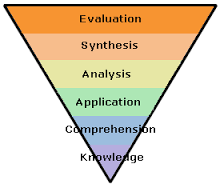Understanding, addressing and incorporating accommodations for twice-exceptional students within the private music studio setting is essential to their development.
It is just important to focus on enriching and extending the twice-exceptional student in order to support their cognitive abilities.
“So you’ve got to develop the talent while accommodating disability’.
(Neihart, 2010)
When designing and implementing your lesson structure, carefully monitor the progress of the student. He or she may require a balance of challenging music, whilst still grasping the concept of early technique. The student may also benefit from a diverse range of musical styles and engage in exploring the different elements of music.
Placing limitations on progress due to age sets a ceiling, thus limiting natural progression. It may certainly be possible for an 8 year old to comprehend 3rd or even 4th grade level theory.
To engage higher order thinking skills, private music teachers may also consider employing Bloom’s Taxonomy of Educational Objectives (Davis et. al., 2011). The Inverted Pyramid ‘illustrates the notion that with gifted children, more time should be invested on higher-level activities and objectives, compared with the reverse of regular students’. For gifted children, knowledge in itself may not be completely satisfying. For example, when a student begins to explore chord structure on their instrument, simple knowing what a C Major chord is limits their ability to think and process. Engaging in the Bloom’s Taxonomy model, the student may like to apply their new-found chord knowledge in a piece of music. Perhaps they might like to analyse the chord’s structure, transferring its make up to create new chords. They may like to evaluate other pieces of music for the C major chord or decide to compose their own music using chords.
General questioning and discussion of performance ability in pieces can also be centred around this model. Rather than providing direct feedback to a student during a lesson, higher-level questioning allows them the opportunity to evaluate and reflect on their playing.
Appropriate differentiation for gifted learners can be considered effective when the student is in a state of ‘Flow’; that is, their level of skill is met with appropriate challenge.
The work of Mihaly Csikszentmihalyi, as detailed in his book ‘Flow: The Psychology of Optimal Experience’ (1991), highlights that teachers should consider this optimal state of learning for all students. In particular, gifted students will continue to struggle to achieve a state of flow if their lessons are not adequately differentiated (designed with their learning needs at the forefront) and instruction is simply given similar to neuro-typical children.

A highly-skilled child that is given a low-challenge level can disengage from the learning environment and as result, can seem complacent and disinterested. It also needs to be remembered that highly-gifted does not necessarily equal highly-skilled and so, if a gifted child is presented with a high challenge level without appropriate instruction and/or scaffolding, the result can also be detrimental for the child and result in increased, and unnecessary, anxiety. Additionally, teachers should consider that gifted children often only require one or two repetitions for skill-mastery at cognitive level (a physical skill may be more). When a high cognitive skill level is quickly obtained, appropriate level of challenge can be engaged, thus balancing out the optimal level of Flow.
Finding (or supporting our gifted students to find!) the right connection of skill and challenge aims to create an optimal educational experience and can drive that innate passion and excitement for learning music!
